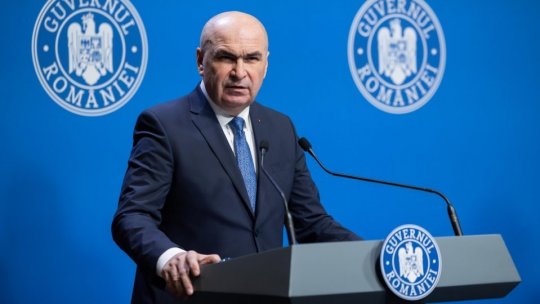Guarantees of 133 percent of the loan for consumer credits
The National Bank of Romania (NBR) is preparing special measures for discouraging foreign currency loans, including major guarantees or a shorter reimbursement period for personal loans.

Articol de Paul Poteraşi, 08 Septembrie 2011, 10:45
Consumer credits will have a maximum five year maturity date, and clients must present guarantees of 133 percent of the loan, according to a regulation being drafted by the NBR, also applicable to branches of foreign banks.
The same regulation draft sets a 30 percent down payment for property Euro-currency loans.
The National Bank of Romania suggests limiting maturity dates to a maximum of five years for consumer credits, as opposed to the current 20 year maximum period used by banks for mortage personal loans.
The central bank wants to clearly define the segment of property loans, which will include financing exclusively for buying property (house/land), building housing or upgrading/extending housing.
This will also apply to refinancing credit loans for property loans.
Mortage consumer loans will be treated like any other type of consumer loan.
In the case of consumer loans for the purchase of goods, the client must hold a real guarantee (generally mortgage) or personal (for example an insurance policy) worth 133 percent of the loan.
For other consumer loans, the borrower will present a real or personal guarantee of 133 percent of the loan.
Loans for medical treatment, decease cases and studies are exceptions to these provisions.
For property loans, the debtor should bring a minimum down-payment of 15 percent of the loan in case of RON loans, 30 percent in case of Euro currency loans, and 40 percent in case of other foreign currency loans.
Same as now, banks will have to devise risk scenarios that will allow their indebtedness rate to stay under the maximum level provided by their own financing norms, until maturity is reached.
Early in April this year, NBR governor Mugur Isărescu announced, in a Mediafax interview, the central bank is preparing special measures, most likely prudential ones, aimed at discouraging people with salaries in RON to take foreign currency loans, in line with the trends at European level.
At the end of July, foreign currency loans were worth RON 137.7 billion, 72 percent more than RON loans, worth RON 80 billion.
Foreign currency loans of the population represent a total of 67.7 billion lei, of which RON 37.5 billion represent consumer credit and RON 28.9 billion represent property loans.
The structure of RON financing for the population is dominated by consumer credit, worth RON 26.2 billion, from a total of RON 35.4 billion.
Translated by: Tudor Ciocănel
MA Student, MTTLC, Bucharest University













